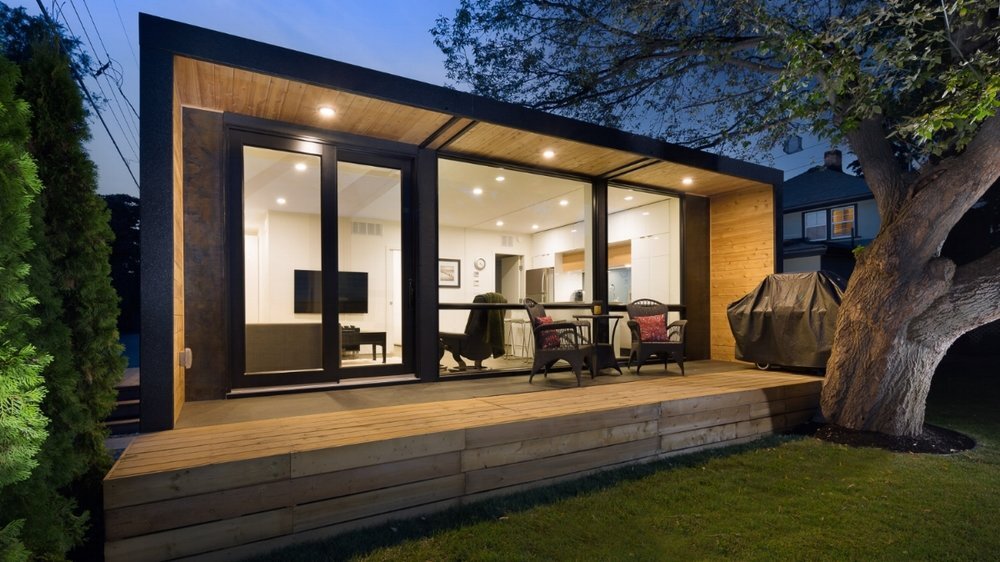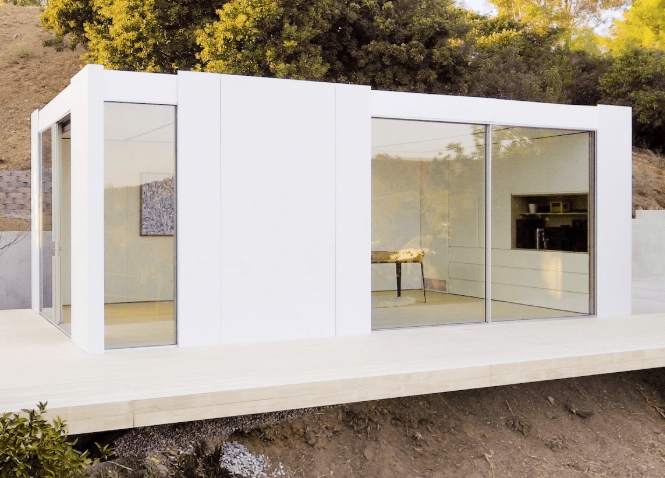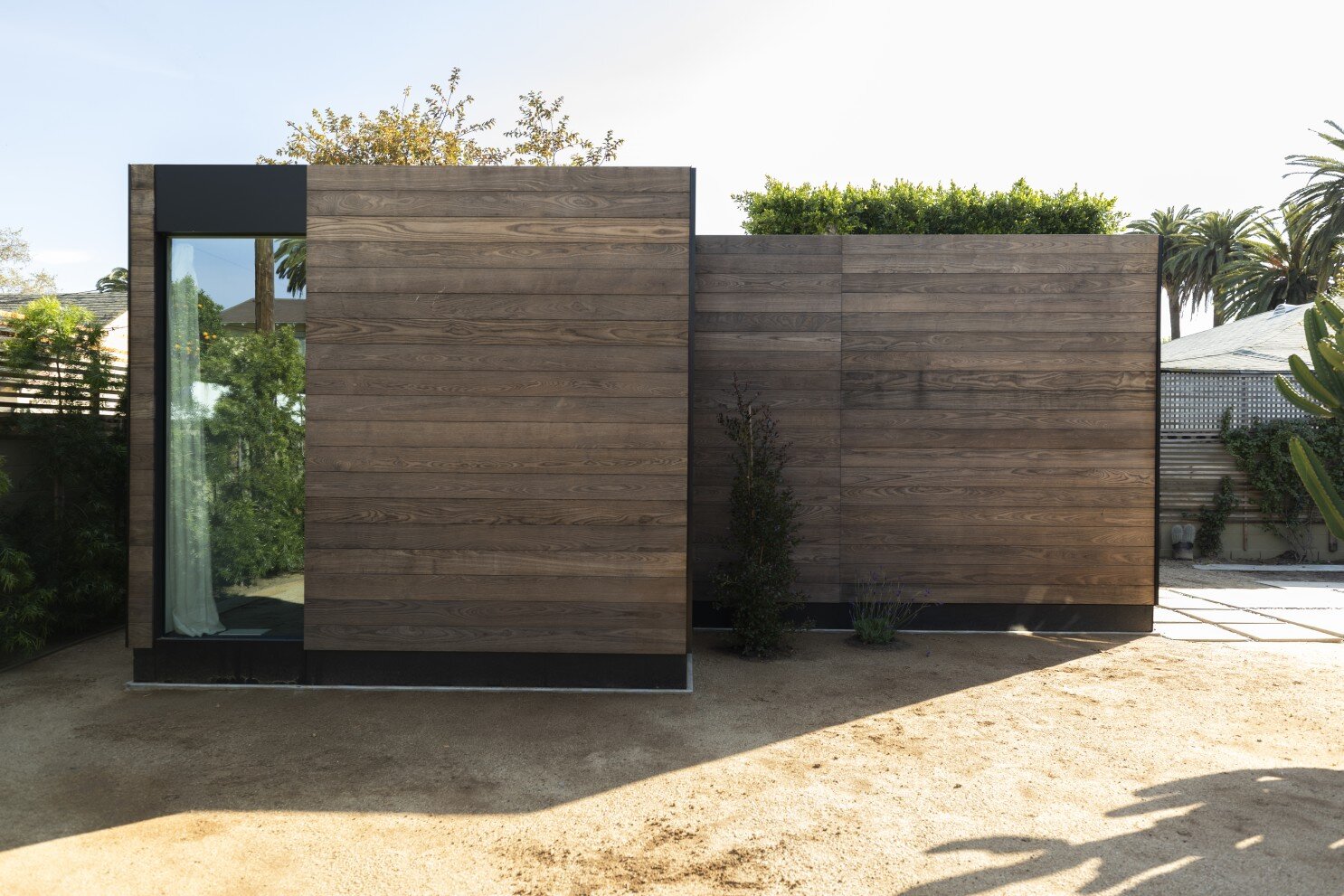Hometap ADU Financing Review

How Do You Finance an ADU and Why Consider Hometap?
Recently, ADUs, also referred to as auxiliary dwelling units, granny flats, and in-law suites, have grown in popularity across the United States. Given their versatility, ADUs can be used to generate income as a rental unit or expand the livable space on one’s property, it is no surprise that more and more individuals are turning to ADUs as a creative housing solution. Despite this increase in popularity, ADU-specific lending products have been slow to emerge. While individuals can still finance an ADU build with cash or lending products like home equity loans, home equity lines of credit, cash out refinancing, or construction loans, there are drawbacks that make these products unappealing for some individuals. These limitations include strict borrower profiles, high monthly payments, and rigid draw schedules.
As an alternative to traditional lending products, Hometap offers homeowners with equity in their property cash in exchange for a share of their home’s value. This model provides individuals with access to up to $300,000 with no monthly payments and a 10-year term, which can help finance an ADU Project. In our Hometap review below, we address questions central to deciding if Hometap’s home equity sharing product is right for you including, How does Hometap work? What are the requirements for Hometap’s home equity sharing? and How much money can I receive from Hometap?
What is Hometap?
Hometap is an alternative to traditional lending products(home equity loan, home equity line of credit, cash out refinancing, or construction loan) that uses a debt-free model whereby individuals receive cash in exchange for a percentage of their home’s value. At the end of the 10-year term, individuals can either sell their home or buy-out Hometap’s share of the home.
The money individuals receive from Hometap can be used unconditionally and while it is often used to pay down debts, start a business, or fund education, we have found that money from Hometap can be used to finance an ADU build.
Below, our table of key characteristics outlines important information about Hometap’s home equity-based lending product.
| Maximum Cash Amount | Maximum Borrowing Period | Service Area | Eligibility | Reviews* | |
|---|---|---|---|---|---|
| Hometap | $300,000 (maximum offer is 30% of your home’s value) | 10 Years | CA, MA, NY, VA, NC, FL, OR, MD (as of May, 2020) | - Must have at least 25% equity in your home -Credit score of at least 600 |
4.8 Stars (as of May, 2020) |
*Reviews are based on prior customer reviews and sourced on May 1, 2020. Reviews are based on consumer reviews from Trustpilot
** (Accurate as of May, 2020)
How does borrowing from Hometap work?
Hometap’s co-investment lending product works by giving individuals money in exchange for equity in the value of one’s home. The percentage of equity that Hometap receives varies from case to case and is determined by factors such as borrower profile, amount borrowed, and the value of the home. Borrowers can buy-out Hometap’s share of equity at any time up to the 10-year term or sell their home, in which case Hometap receives their share of the home’s value. When buying-out Hometap’s share, individuals can repay Hometap either with cash or another loan.
The amount to be repaid to Hometap is equivalent to Hometap’s share of your home’s appraised value. For example, if you were to borrow $50,000 in exchange for 10% equity and at the end of the 10-year term, your home’s value was $750,000, you would be responsible for repaying Hometap $75,000. (Hometap’s Share, 10% x Your Home’s Value, $750,000).
There are a few key areas where Hometap differs from other home equity share lenders. First, where other home equity sharers like Point, Unison, and Noah’s repayment amounts are based on your home’s appreciation/depreciation, Hometap’s equity is based on the total assessed value of your home. Second, there are some caveats in their lending model that make it more favorable for financing an ADU project. In cases where your financing is used for a renovation or ADU project that increases the value of your home, borrowers can request an adjustment that excludes the renovation or ADU appreciation from repayment costs. Additionally, in the event that your home spikes in value, Hometap limits their annual appreciation to 20%.
It is also important to note that Hometap charges an origination fee of 3% of the financing amount, which is deducted from your original financing amount.
Where Does Hometap Serve?
At the time of publication, only borrowers in certain locations are eligible to borrow from Hometap. Currently, Hometap’s co-investment product is only available to individuals in California, Massachusetts, New York, Virginia, North Carolina, Florida, Oregon, and Maryland. (Accurate as of May, 2020)
Does Hometap Have Good Reviews?
At the time of publication, Hometap has high reviews, with one site giving Hometap a rating of 4.8/5 stars based on 107 customer reviews. While this does not entirely indicate that Hometap may be a good or bad option for financing your ADU project, it is an indicator of past borrowers’ experiences.
How Does Hometap Compare to Other ADU Lender Types?
Hometap differs from traditional lending products like home equity loans, home equity lines of credit (HELOC), and reverse mortgages for a few reasons. First, Hometap does not have any monthly payments. In the example below, this would result in a monthly savings of over $650.
Second, borrowers and Hometap have aligned interests. In the event that your home increases in value over the period of borrowing, both you and Hometap share the benefits. In the event that your home decreases in value, you share in the loss and your repayment amount is less. This is the main difference between Hometap and a traditional lender - there is no fixed repayment amount.
Third, Hometap does not have any requirements on how you must spend your money. Unlike a construction loan, money from Hometap is available for up-front use. And unlike some home equity lines of credit, there are no restrictions on draw amounts. This makes it possible for financing an ADU build.
What do the Economics of an ADU Project Financed with Hometap Look Like?
| ADU Financing With Hometap | Home Equity Loan | Home Equity Line of Credit | Notes | ||
|---|---|---|---|---|---|
| Appreciation | Depreciation | ||||
| Current Home Value | $1,000,000 | $1,000,000 | $1,000,000 | $1,000,000 | |
| Future Home Value | $1,343,916 | $900,000 | Excluding the value of an ADU project, given a Hometap approved home value adjustment. Appreciation scenario assumes 3% annual appreciation | ||
| Home Value Change | $343,916 | -$100,000 | |||
| ADU Project Cost/ Amount Borrowed | $250,000 | $250,000 | $250,000 | $250,000 | |
| Interest rate | 0% | 0% | 6.25% | 5.25% | |
| Interest Payments | $0 | $0 | $86,840 | $71,875 | Calculated using an amount borrowed of $250,000 for a period of 10 years |
| Hometap's Share of Your Home | $470,371 | $315,000 | Hometap's equity in your home's value is dependent on your individual profile and they don't publish their maximum stake. In this case, we estiamte Hometap's share at 35% | ||
| Hometap Origination Fee | $7,500 | $7,500 | $8,750 | $8,750 | Hometap charges a one-time closing fee of 3% of the financing amount |
| While some banks may waive certain fees, typical fees and costs from a bank can be 2%-5% of the loan amount. In this case estimate fees at 3.5% | |||||
| Total Repayment Amount | $477,871 | $322,500 | $345,590 | $330,625 | At the end of the 10-year term |
Besides Hometap, How Else Can I Finance an ADU Project?
While the most straight-forward way to finance a new ADU is with cash, that option is not practical for most individuals. Other ways to finance an ADU build include: home equity loans, home equity lines of credit, cash-out refinancing, or construction loans.
In addition to Hometap, other companies that offer alternatives to traditional lending products include:
Similar to Hometap, these companies allow borrowers to access and trade a share of their equity in their home’s value for cash however, they all have slight nuances in their eligibility and cost and fee structure. Read a side by side comparison of these home-equity share companies here.




